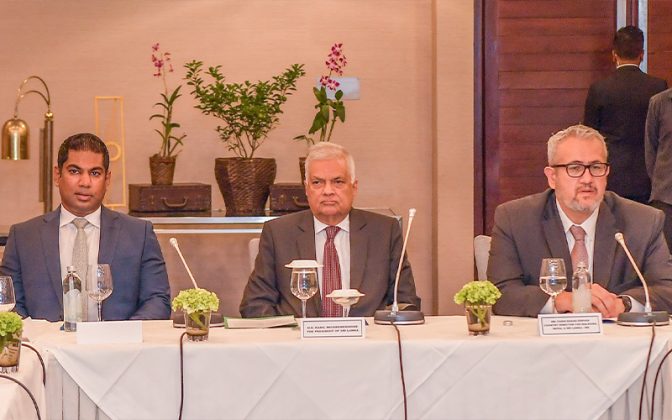Sri Lanka is closely examining South Australia’s energy transition policy, which aims for net-zero emissions by 2050, as it contemplates its own energy transition legislation. This initiative is driven by President Ranil Wickremesinghe, who emphasized the potential benefits of such legislation during the “Advancing Energy Transition” roundtable discussion held at the Hilton Colombo on Wednesday.
The Push for Energy Transition Legislation
At the event, organized in collaboration with the World Bank, the Ministry of Power and Energy, and the Ceylon Electricity Board (CEB), President Wickremesinghe articulated the necessity for Sri Lanka to develop a comprehensive energy transition strategy. He mentioned the importance of studying successful models like South Australia’s to determine if similar legislation could benefit Sri Lanka.
“Some countries have energy transition legislation. We have also looked at that. We have looked at some areas such as South Australia. It may be useful for us to have energy transition legislation,” President Wickremesinghe stated.
Exploring Renewable Energy and Green Hydrogen
The roundtable discussion underscored the need for a strategic approach to harness renewable energy and investigate future trends in green hydrogen. President Wickremesinghe highlighted the potential of undersea cables for power distribution, specifically mentioning a project connecting Australia and Singapore, and another linking Singapore and India. Sri Lanka could potentially connect to the Indo-Singapore undersea cable, enhancing its capacity as a regional logistics hub.
“There are new undersea cables coming for power distribution. One is between Australia and Singapore, and the other is between Singapore and India. Now Sri Lanka has the potential to connect to the Indo-Singapore undersea cable. That is where the potential is. While looking at the uses of green hydrogen, we feel that it will help us in the long term to become a logistics centre for the region,” the President elaborated.
Importance of Detailed Planning and International Collaboration
President Wickremesinghe referred to a recent report by PricewaterhouseCoopers on green hydrogen, stressing the need for meticulous planning to capitalize on this emerging sector. Recognizing the current gaps in local expertise, he called for international support from organizations like the World Bank and the Asian Development Bank (ADB), as well as engagement from both local and international investors.
He reiterated Sri Lanka’s commitment to building a sustainable and competitive economy, with renewable energy as a cornerstone of this vision. To support these efforts, the President mentioned recent legislative measures, such as the Electricity Reform Bill and the forthcoming Climate Change Act, designed to facilitate the energy transition.
Moving Forward
As Sri Lanka considers the adoption of energy transition legislation, it will continue to study international examples and seek collaborative opportunities to enhance its renewable energy infrastructure. The insights gained from South Australia’s policies and other global practices will be instrumental in shaping Sri Lanka’s path towards a sustainable and resilient energy future.
4o


